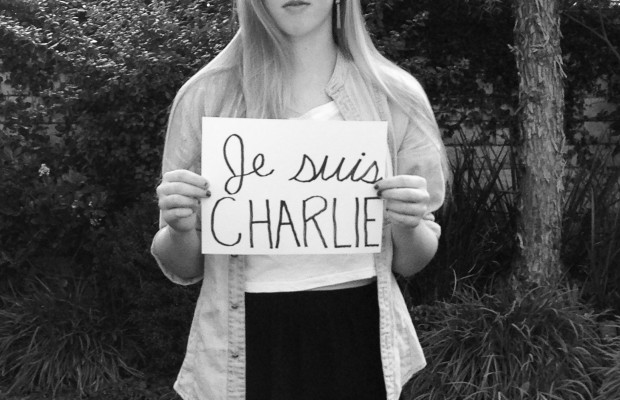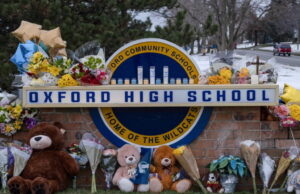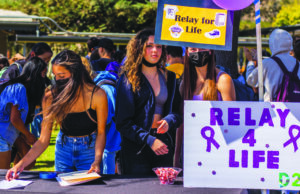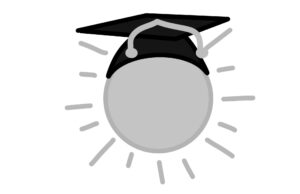Charlie Hebdo attack impacts students and faculty

In response to offensive cartoons depicting the Prophet Muhammad, two gunmen attacked the satirical magazine “Charlie Hebdo” on the morning of Jan. 7, killing 12 people, including the editor of the magazine. This attack has brought to light the controversy surrounding free speech and respect for religion.
“Charlie Hebdo” has come to stand for freedom of expression all over the world with hashtags such as #JeSuisCharlie (#IAmCharlie). Rallies and marches have sprung up in Europe and around the globe as the world showed its solidarity with Paris. Further attacks, such as a firebomb attack on a German newspaper that reprinted the cartoon, have continued, but so has the determination to stand up for the freedom of speech. After the attack, “Charlie Hebdo” promised to print 3 million copies of its next issue, which again depicted the Prophet Muhammad. They ended up quickly reprinting several million more.
The attack hit close to home for some students. “I’m from Southern Normandy in Le Mans,” said Mazarine Penzin, junior. “My first feeling was fear because I didn’t know how bad it was and if any of my family or friends could be hurt. (For this to) happen to such a wonderful place for me just broke my heart and brought me to tears.”
Christine Cardenas, French teacher, not only saw the attack as one on freedom of speech, but on French culture itself. “The culture of political cartoons has been in France for a very long time; it was there first, before immigration,” said Cardenas, recalling the satirical cartoons she was shown in elementary school. “So it’s really taking away culture, a French cultural thing, to say we can’t have the right to do it.”
Cardenas, a dual citizen of France and the United States, worried about an extreme response from the French people. “If the actual government doesn’t do what the French citizen is looking for, then (the right wing) will come into power, not necessarily because people understand what that party could do, but more as a sign of protestation.”
When Matthew Teasdale, senior, heard of the attack, he immediately thought of his family in Paris. “I wanted to be sure they were safe. My cousin was only a few kilometers away from the terrorists when they fled to the outer suburbs of Paris. Thankfully, she got away,” he said. “It made me realize that these big news stories that seem so far away really happen and we shouldn’t treat these events impersonally.”
The attack has serious implications for France and has affected French citizens around the world, but it cuts even deeper than that for many outside of France. “I think the issue is these radical religious groups trying to hurt those people who challenge or defy their beliefs,” Penzin said. “They don’t feel that people have the right to openly express opinions that aren’t like theirs which is why people feel this an attack on freedom of speech. I think that people need to understand that there are always going to be (something) that will not agree with your beliefs, but that you shouldn’t be afraid to express them.”
Despite the international effort to stand against these terrorists, many media outlets around the world and in the United States, including National Public Radio (NPR), have declined to show the offensive images, including the controversial cover published after the attacks. Cardenas believes that “(France) is a democracy and a secular country … you are a French citizen (first), then you are religious, not the other way around.” She added that this ideology is what allowed “Charlie Hebdo” to publish the articles in the first place. However, she sees the opposite values in the United States.
“I think there is a big difference between the U.S. and France, where (in the) U.S. religion is there. Every morning we say one nation under God. There is God on your dollar bill. When I became an American citizen, one of the questions was: which religion are you? We know that President Obama is Christian,” said Cardenas. On the contrary, she has no idea what religion Francois Hollande, the President of France, practices.
Cardenas said holding religion over secular national values will not work as a system in France, and that France’s national heroes fought for those secular values.
“You need to understand what our great-great-great grandfathers, pure-blood French, fought for. La Bastille! All of that is coming from here – Rousseau, Voltaire, who fought for us, for journalists, to say what we want to say, when we want to say it, how we want to say it.”
Cardenas believes that there is a more prevalent religious atmosphere in the U.S., and sometimes this religious freedom comes into conflict with freedom of speech. This tension is also visible in France. “(People) should understand the debate going on in France at the moment between the liberty of expression and the respect for religion and other sensitive topics that others can be easily offended by,” said Teasdale.
After this tragedy, it is evident that freedom of speech is valued here as much as anywhere. People are still willing to make a stand against terrorists, even if that stand is a simple Instagram post of a “Je Suis Charlie” sign.



